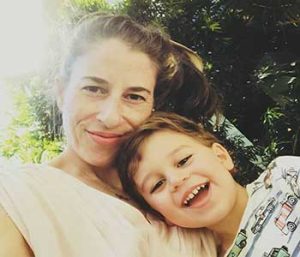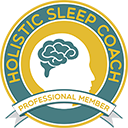When you’re up at 3:00 AM with a restless baby, chances are you’re typing questions into Google faster than your coffee brews. You’re not alone and you’re not doing it wrong. The truth is, most parents are searching for the same sleep-related answers, often with the same mix of exhaustion, hope, and confusion.
This article covers the most-searched baby and toddler sleep issues and offers my Sleep Done Different® take on how to navigate them. Grounded in attachment, rhythm and real-life science, these insights shift you away from frantic “fixing” and toward something that actually works.
🍼 1. Newborn Sleep & Dream Feeds
Most-searched terms: “Newborn sleep help,” “How to sleep train baby,” “Dream feed.”
Dream feeds (that late-evening top-up around 10:30 PM) promise longer stretches of sleep but the deeper need here is: how can newborn sleep feel more manageable?
The truth? Newborns aren’t meant to “sleep through the night.” Their sleep is polyphasic, their needs are frequent and their nervous systems are still wiring up. Tuning into their cues, supporting their transitions and offering warmth and rhythm can build a more restful sleep foundation without resorting to pressure-filled methods or rigid routines.
✨ What helps: Safe room share setups, contact naps, regular daytime exposure to natural light and feeding on cue, not schedule. Sleep support begins with connection.
🧠 2. Sleep Regressions (aka Progressions in Disguise)
Most-searched terms: “4-month sleep regression,” “Why is my baby waking up all night?”
Sleep regressions are developmental leaps: Cognitive, motor and emotional. These disrupt what once felt like “progress.” The 4-month regression is most infamous but many babies hit new phases around 6–10 months and again in toddlerhood.
✨ What helps: Stay flexible. Offer comfort when needed. Maintain gentle rhythms but expect them to shift. Regression is growth. It’s not forever and it’s not your fault.
🌅 3. Early Wake-Ups (Yep, the 4:00 AM Shuffle)
Most-searched terms: “Baby wakes up 4am,” “How to stop early rising.”
That pre-dawn party is a mystery to many tired families. Often, it’s a mix of too-early bedtime, overtiredness, a light/dark mismatch in the room and many other factors. Babies’ sleep cycles tend to be lighter around 4:00 AM naturally so if the environment says “morning,” they believe it!
✨ What helps: Darken the room until you’re ready to start the day. Use consistent cues for sleep and waking (same song, tone or phrase) to keep messaging clear.
💤 4. Short Naps and Nap Transitions
Most-searched terms: “Baby only naps 30 minutes,” “Nap schedule help.”
Short naps are common between 3 and 6 months, especially when sleep cycles are still organizing. Overtiredness and overstimulation can also lead to false starts and short sleeps.
✨ What helps: Try not to obsess over wake windows. Instead, watch your baby not the clock. Offer naps in consistent places with low stimulation. Sometimes motion naps (in a carrier or pram) can help build sleep pressure in babies under 4 months of age.
😩 5. Bedtime Battles & Toddler Sleep Resistance
Most-searched terms: “Toddler won’t go to bed,” “2-year-old keeps waking.”
As babies become toddlers, bedtime can become turbulent. Separation anxiety, power struggles and busy brains all contribute.
✨ What helps: Predictability, not perfection. Create rituals such as songs, stories, lights off in a certain order. Emotional co-regulation helps them feel safe to let go of the day.
👶 6. Safe Sleep & SIDS Prevention
Most-searched terms: “Safe sleep for baby,” “Is co-sleeping safe?”
Parents want sleep that works and feels safe. The Safe Sleep guidelines (from NICHD) recommend back-sleeping, firm surfaces and room-sharing without bed-sharing. I make these a must when working with clients.
✨ What helps: Know what is deemed as safe and remain supportive for your baby. Sidecar bassinets, baby boxes and supervised contact sleep (that means you are awake) are all options that honor attachment and reduce stress.

💡 A Gentle Sleep Framework (All Ages)
| Age Range | Common Searches | My Sleep Done Different Approach |
| Newborn (0–3m) | Dream feeds, sleep training | Build trust with rhythm, not strict schedules |
| 4–10m | Sleep regressions, night waking | Support growth with flexibility and connection |
| 1–4yrs | Bedtime resistance, night waking | Co-create rituals and validate big feelings |
| Any Age | Nap issues, early rising, safe sleep | Watch cues, adjust environment, stay responsive |
❤️ Final Thought
You’re not alone in your 3:00 AM searches but maybe it’s time to replace them with something that’s gentler and rooted in trust. Your baby doesn’t need fixing. They need you, attuned and empowered.
Sleep support doesn’t start with a schedule. It starts with listening.
Want help turning this into something practical and personalized? Explore our offerings below to start wherever you are:
📌 Newborn (0-4 months) or Expecting? – Your baby has a language. You can learn it. Start strong with Start strong with Baby Listening
📌 Big Feelings? Sensitive Sleeper? For kids who need connection: Emotional needs meet sleep readiness. Learn about Snuggles Coaching™
All-ages guidance for co-regulation and rest
📌Prefer a Self-Paced Guide? Start with the “Rest & Resilience” eBook.
A nurturing first step toward peaceful sleep, emotional security and confident parenting.
📌 4 Months to 10 Years: 1:1 coaching meets your child with empathy, not control. Explore 1:1 Coaching









